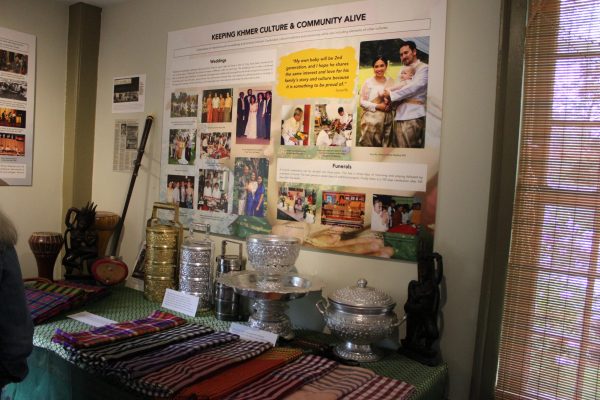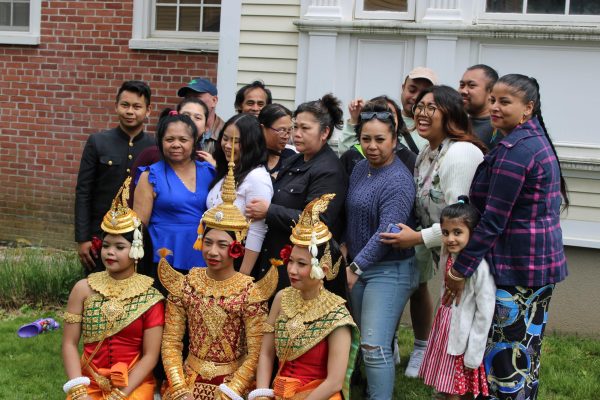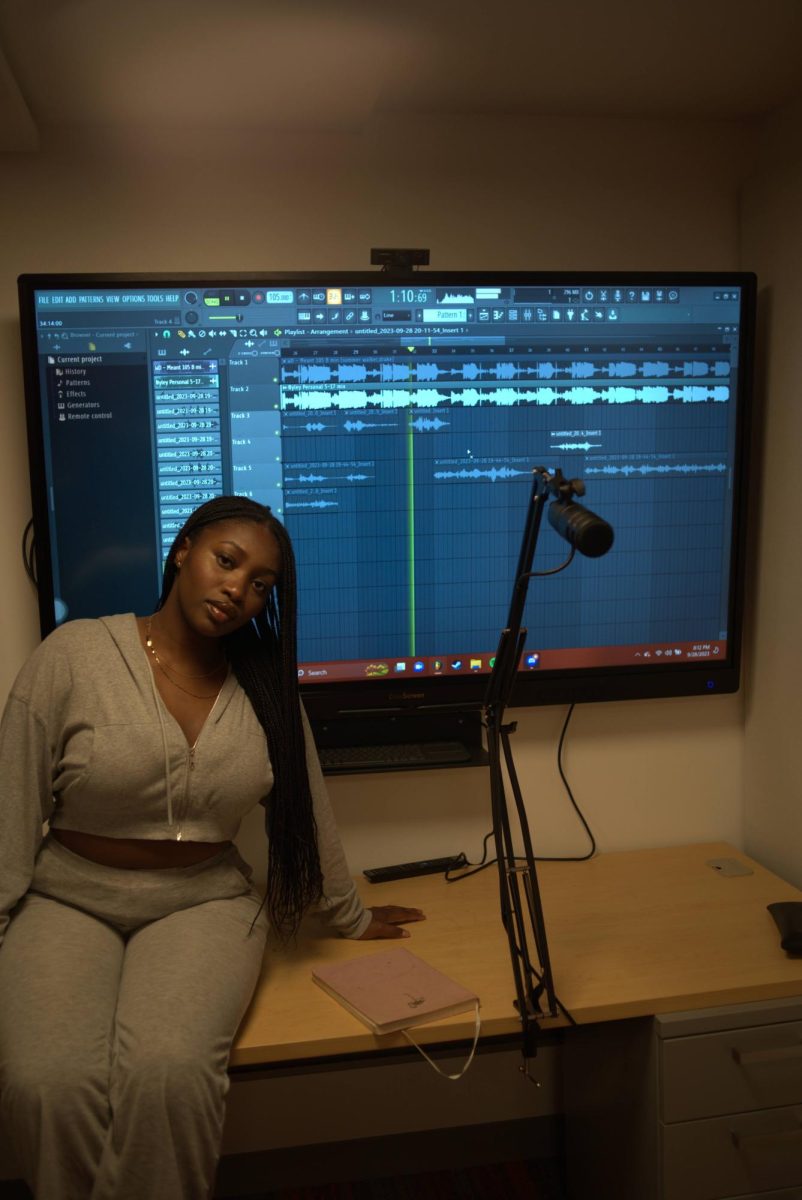The Amherst History Museum held its grand opening of “Cambodians In Amherst: The History of the Khmer Community” last week on May 11. The exhibit, which includes oral histories, photos, documents, art and other artifacts, details the genocide of Cambodians committed by the Khmer Rouge between the late 1970s and early 1980s, and the subsequent settling of Cambodian families in the area.
Amherst Historical Society board member and “Cambodians In Amherst” project manager Mick O’Connor was interested in participating in the project based on his own personal beliefs in the importance of civic and community action.
O’Connor helped organize the oral history training, helped establish interview frameworks and further researched the history of local temples.
Through all the hard work, O’Connor hopes the people of Amherst will be moved by the stories of “shared humanity,” as members of the Amherst community had opened their homes to the survivors of the Khmer Rouge genocide. Through determination, the Cambodian community successfully settled in the region.
“This is, in some ways, an immigration story,” O’Connor said. “And [it shows] how Cambodians worked hard to ground themselves in their new home, preserve their culture and traditions, and integrate into the social fabric of the area.”

Seiha Krouch, a paraeducator at the Amherst-Pelham Regional Middle School, was one of the children sponsored to come to Amherst in 1984. At four years old, Krouch was brought to Amherst with the help of Elaine Kenseth-Abel, who was already sponsoring his grandmother. After the killing field and camp Khao-I-Dang, Krouch had to learn how to adapt to his new surroundings and education.
“For the first time in my life, because of war, I started school here in sixth grade,” Krouch said. “It was a struggle. [The educators] didn’t know what to do with all of the Cambodian refugees. It was new to the town.”
Kimberly McDowell, an English language arts teacher at the Amherst-Pelham Regional Middle School and colleague of Krouch, recalled the difficult moments of their shared childhood education in Amherst regarding language barriers. Despite those struggles, the community was able to diversify and enhance the town’s education curriculum.
Krouch said this historical education of Cambodian history is beneficial to students who may not know the history, as well as for the younger generations of the children and grandchildren whose families had been sponsored by the churches and volunteer residents of the town.
“We’re very fortunate with UMass being here and bringing in this huge [and diverse] community. … A lot [of it] has to do with this Five College area,” McDowell said.

Richard Chu, a Five College history professor and faculty member at the University of Massachusetts Amherst is a member of Massachusetts’ Asian American Pacific Islander (AAPI) Commission. Through his role as a professor, there were several occasions where he had worked with the Cambodian American community in Amherst, including a course that revolved around AAPI history. Chu’s students would conduct oral histories with members of the AAPI community in western Massachusetts.
During his projects, Chu said UMass had been an active participant in making the Cambodian community feel welcome. If the school continues coordinating and collaborating with the town to make the area a safe place, it would be wonderful as “there is still so much to be done in terms of making [refugees and people of diverse backgrounds] feel like they belong.”
As the exhibit on 67 Amity St. discusses the Cambodian genocide, just down the road, UMass students and community members protest in support of Palestinian people in Gaza.
Despite the similarities of the two historical events, Chu notes the differences between UMass’ past and current actions. During the 70s, UMass divested from companies who supported the apartheid in South Africa. Today, the divestment movement is less popular with administrators. This disappoints Chu, as the motto of the University is “to ‘be revolutionary.’ That’s what makes [UMass] unique,” he said.
“I hope the administrators and the wider community don’t forget the lessons of history,” Chu said. “Anything that is connected to genocide should be condemned and fought.”
“Cambodians In Amherst: The History of the Khmer Community” will be open every Saturday from 11 a.m. to 3 p.m. until November 1.
Kalina Kornacki can be reached at [email protected] or followed on Twitter @KalinaKornacki.



















